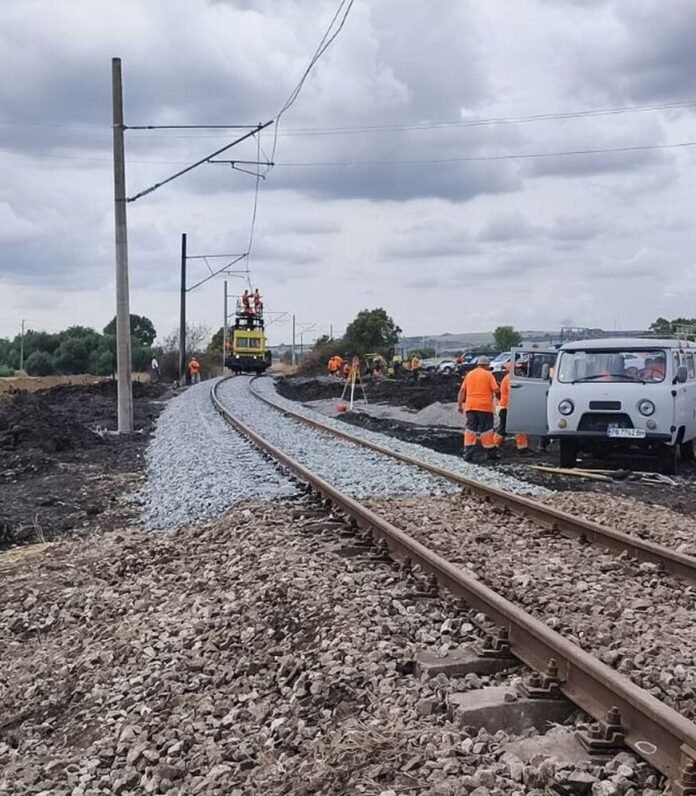
The National Railway Infrastructure Company (NRIC) has announced the successful restoration of the railway track and overhead contact line between Lyubenovo and Simeonovgrad stations, following a serious derailment that took place near the village of Pyasachevo, Haskovo Region, on August 15. Train services on the affected section have now resumed.
According to NRIC, the repair efforts were intensive and required round-the-clock work by teams from its Plovdiv railway and power departments. The accident had destroyed part of the track infrastructure, halting services on the busy freight route.
Engineers replaced 100 metres of damaged track and 200 sleepers, laid 140 cubic metres of ballast, and fully restored the overhead contact line, enabling the resumption of train operations in record time.
The derailment involved 13 freight wagons from a 34-car train, each tanker carrying between 60 and 80 tonnes of diesel fuel.
Several wagons caught fire after the crash, leading to concerns about a larger environmental and safety hazard. Fortunately, firefighters managed to extinguish the flames before they spread further, and no casualties were reported.
Despite the quick response, the accident caused extensive infrastructural damage. Railway experts noted that derailments involving hazardous cargo, particularly fuel, can have catastrophic consequences if not managed swiftly.
The restoration of the line was therefore critical not only for logistical continuity but also for public confidence in the safety of the railway network.
NRIC said that although the section has reopened, strict safety measures are being applied. Train speeds will remain restricted in the coming days, with specialized safety officers assigned to monitor the stretch for any potential weaknesses.
These temporary measures are expected to remain in place until engineers are satisfied that the repaired infrastructure can handle normal traffic conditions.
Local authorities expressed relief at the absence of casualties and praised the coordinated efforts of NRIC, emergency responders, and firefighters.
“This could have been a tragedy of far greater proportions,” one municipal official commented, highlighting that the prompt containment of the fire prevented more serious outcomes.
The cause of the derailment is still under investigation, with railway authorities examining both technical and operational factors. Preliminary assessments suggest that the weight of the heavily loaded fuel tankers and potential track instability may have contributed to the accident. A detailed report is expected in the coming weeks.
For residents of the Haskovo Region, the reopening of the Lyubenovo-Simeonovgrad section marks a welcome return to normalcy, as the line is a critical route for freight transport.
NRIC emphasized that the successful repair operation demonstrates its capacity to handle emergencies and restore vital infrastructure within a short timeframe.
With safety measures in place and an ongoing investigation into the cause, officials assure that every effort is being made to prevent similar accidents in the future.
The Pyasachevo derailment, while fortunately without casualties, serves as a stark reminder of the risks involved in heavy freight transportation and the importance of constant vigilance in railway operations.
